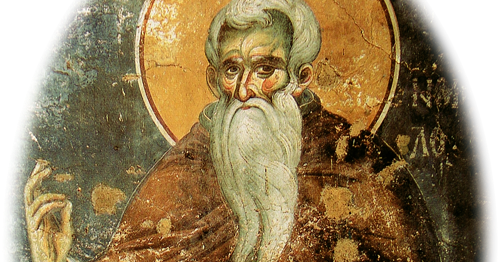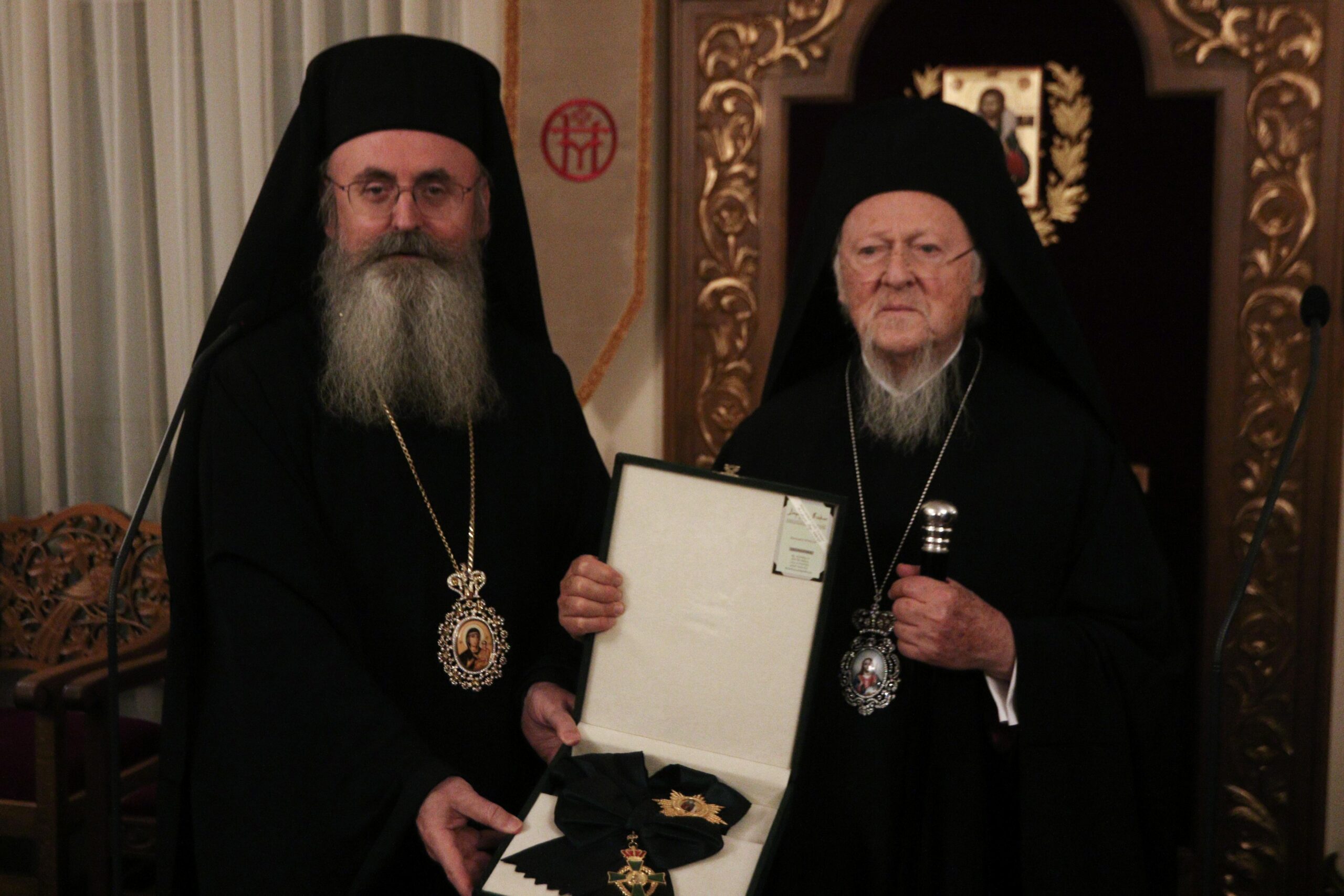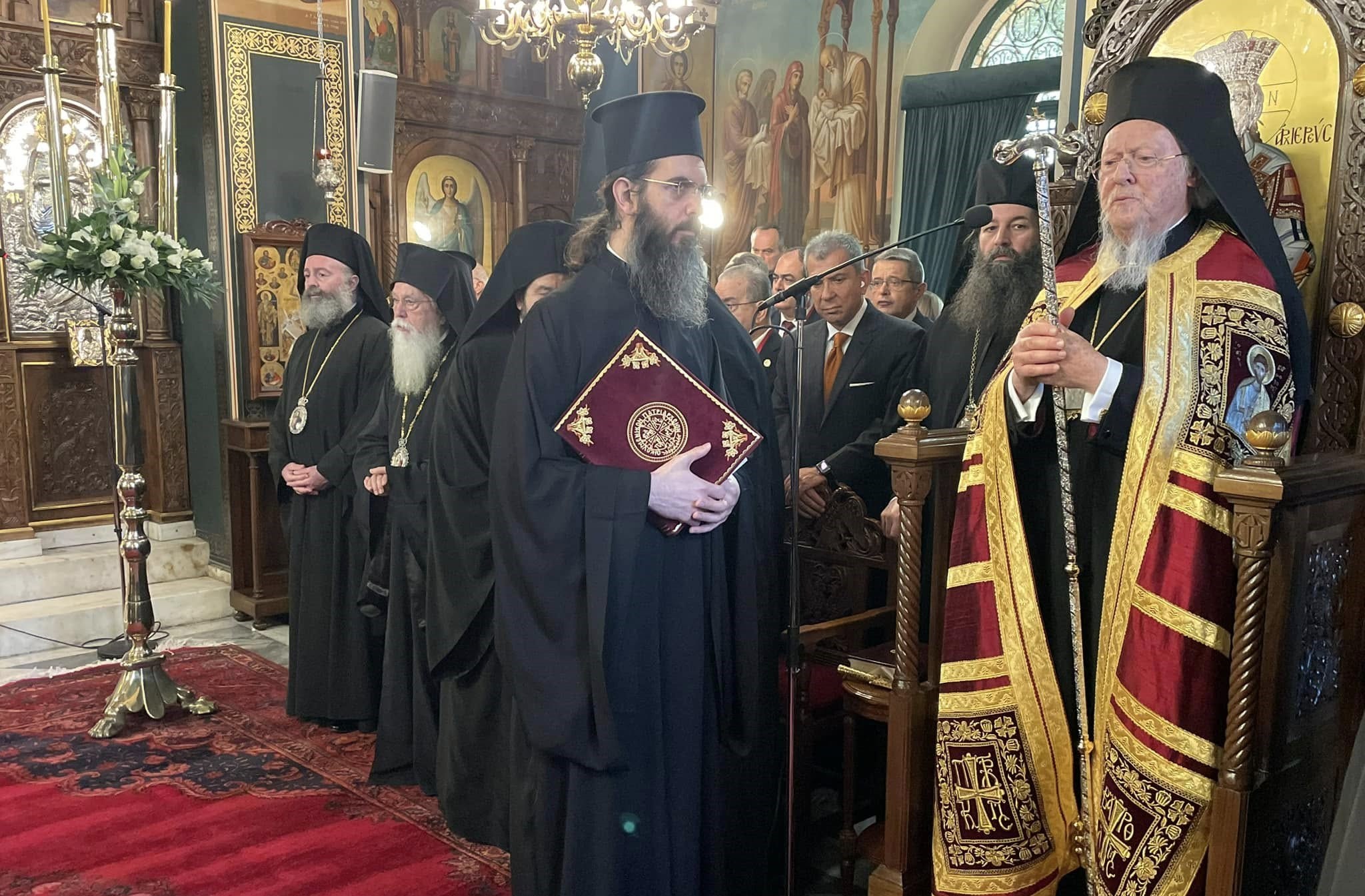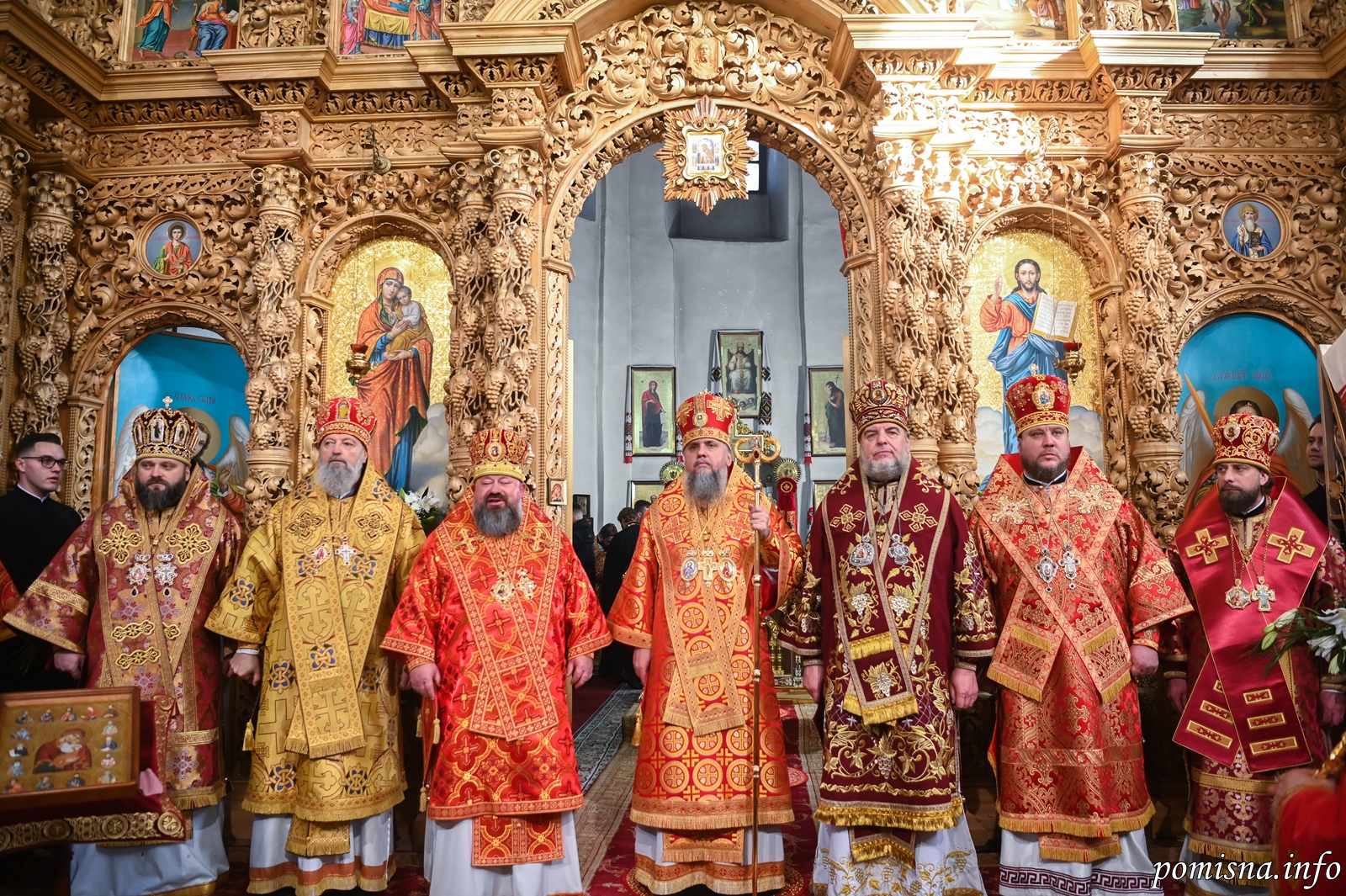Venerable Neilos the Ascetic of Sinai (12 November)


Saint Neilos the Ascetic of Sinai, a native of Constantinople, lived during the V century and was a disciple of Saint John Chrysostom, who exerted a tremendous influence upon their lives and their spiritual struggles.1 After receiving a fine education, the Saint was appointed to the important post of prefect of the capital while still a young man. During this period, Neilos was married and had children, but the couple found courtly life distasteful.
About the year 390, by mutual consent, they decided to abandon the world and entered monasteries. Neilos’s wife and daughter went to one of the women’s monasteries in Egypt, while he and his son Theódoulos went to Mount Sinai, where they settled in a cave, which they dug out with their own hands. For forty years this cave served as the abode of Saint Neilos. By fasting, vigil, and prayer, he attained a high degree of spiritual perfection. People began coming to him from every occupation and social rank, from the Emperor down to the farmer, and all of them received counsel and comfort from the Saint.
On Sinai, Saint Neilos wrote many soul-profiting works to guide Christians on the path of salvation. In one of his letters there is an angry denunciation of the Emperor Arkadios, who had unjustly exiled Saint John Chrysostom. The ascetical writings of Saint Neilos are widely known: they are perfectly executed in form, profoundly Orthodox in content, and are clear and lucid in expression. His Ascetic Discourse is found in Volume I of the English Philokalia.


Saint Neilos suffered many misfortunes in the wilderness. Once, Saracens captured his son Theódoulos, whom they intended to offer as a sacrifice to their pagan gods. By the Saint’s prayers the Lord rescued Theódoulos, and his father found him with the Bishop of Emessa, who had ransomed the young man from the barbarians. This bishop ordained both of them as presbyters. After ordination they returned to Sinai, where they lived as ascetics together until Saint Neilos reposed. His holy relics were transferred to Constantinople in the reign of Justin II (565-578), and were placed in the church of the Holy Apostles.
The Greek Philokalia has a quote from Saint Neilos beneath his icon: “The state of prayer is a passionless, settled disposition of the soul which, by supreme love, transports the wisdom-loving mind to spiritual heights.” (See the English Philokalia, 153 Sections. Concerning Prayer, # 53).
1 In earlier editions of the Synaxaristes and the Menaion, it was erroneously stated that Saint Neilos lived during the reign of Emperor Maurikios (582-602). This was corrected in later editions, since he was a disciple of Saint John Chrysostom, and was esteemed by Emperor Arkadios because of his virtues.
Saint Nilus, who had Constantinople as his homeland, was a disciple of Saint John Chrysostom. He had formerly been an eparch of the city, then became an ascetic on Mount Sinai. He wrote epistles and various ascetical works, and reposed about 451.
Nilus was at first a prefect in the capital city, Constantinople. As a married man, he had a son and a daughter. Seeing the sinful life of the capital, he agreed with his wife to withdraw from the world. This they did. His wife and daughter went to a convent in Egypt. Nilus and his son Theodulus went to Mount Sinai. Nilus lived a life of asceticism on Mount Sinai for a full sixty years. He wrote wonderful books on the spiritual life. He entered peacefully into rest in about the year 450 A.D., in the eightieth year of his earthly existence, and took up his habitation in the blessed heavenly life. These holy words are his: “Physical passions have their origin in physical desires, and against them abstinence is necessary; but spiritual passions are born of spiritual desires, and against them, prayer is necessary.”
Apolytikion of Nilus the Ascetic
Plagal of the Fourth Tone
With the rivers of your tears, you have made the barren desert fertile. Through sighs of sorrow from deep within you, your labors have borne fruit a hundred-fold. By your miracles you have become a light, shining upon the world. O Nilus, our Holy Father, pray to Christ our God, to save our souls.
Kontakion of Nilus the Ascetic
Plagal of the Fourth Tone
By thine unsleeping prayer, O Father Nilus blest of God, thou didst most keenly cut away all the material that enkindleth the revolts of the body’s passions; and since thou possessest boldness with the Lord of all, from all dangers that can be do thou deliver me that I may cry to thee: Rejoice, O universal Father.
Source: oca.org / goarch.org / westserbdio.org




